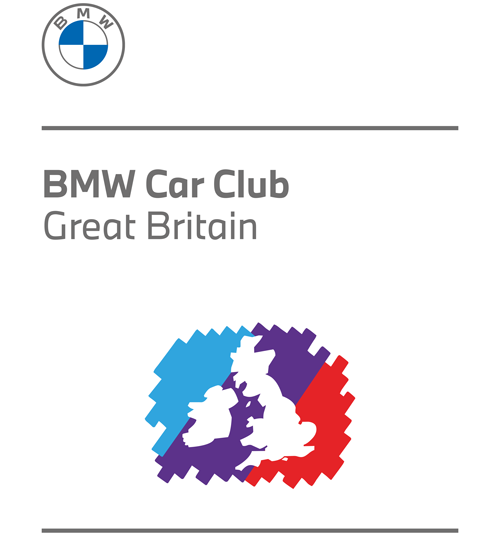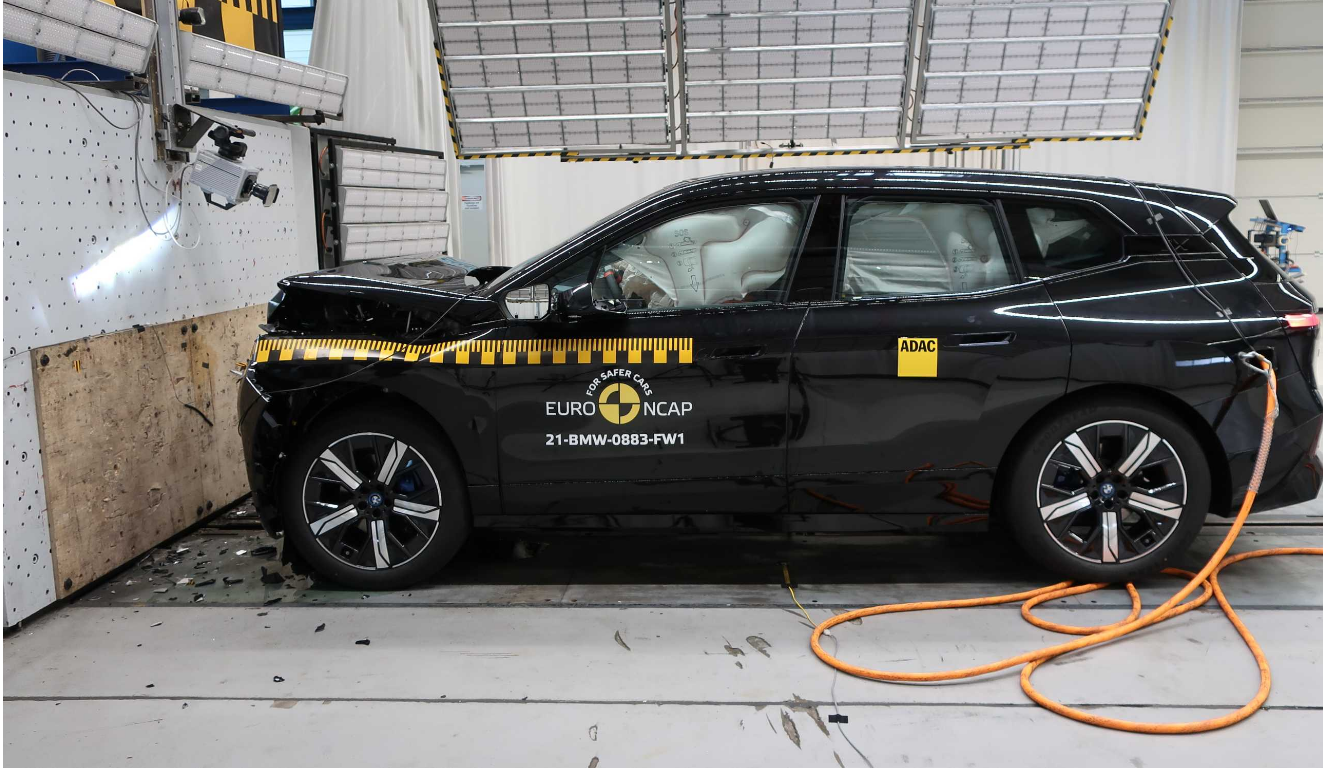08.12.2021 BMW Press
With its purely electric drive and comprehensive range of digital features, the BMW iX represents a new era in individual mobility. In addition, it operates at the highest level of safety. This is according to the experts of the European New Car Assessment Programme (Euro NCAP) – the consumer protection institute specialising in automotive safety – who awarded the BMW iX the highest possible rating of five stars in the Euro NCAP safety assessment. During the course of the test programme, which was further intensified in 2020, the BMW Group’s new technology flagship impressed with both its outstanding occupant protection and its advanced driver assistance systems, which are particularly effective in helping to prevent accidents.
The BMW iX achieved five-star ratings in all test categories of the Euro NCAP crash test. In the assessment of adult occupant protection, the testers highlighted among other features the effectiveness of the new interactive airbag between the driver and front passenger seats, which provides additional protection against injury in the event of a side collision. Child safety in the rear of the BMW iX was also given the highest possible score for both frontal and side collisions.
Meanwhile, the integrated safety concept of the BMW iX ensures the highest level of passenger protection. In addition to precisely coordinated restraint systems, this includes highly resilient support structures and precisely designed deformation zones that absorb the impact of a collision and keep it away from the passenger compartment. The body structure of the BMW iX combines an aluminium spaceframe concept with a carbon cage for the passenger compartment. Particularly torsion-resistant components made of carbon fibre reinforced polymer (CFRP) are used in the roof, side and rear sections of the BMW iX.
“The BMW iX sets new standards in sustainability, and its top rating of five stars in the Euro NCAP underlines the vehicle’s comprehensive sustainability concept,” says Dominik Schuster, Head of Vehicle Safety BMW. “The extremely stable body structure and the extended range of restraint systems ensure an outstanding level of occupant protection. In addition, the BMW iX scores highly both in the test programme and in everyday driving with innovative driver assistance systems that significantly reduce the risk of accidents in a wide array of situations.” Among other features, the BMW iX has a front collision warning system with brake intervention that can detect pedestrians and cyclists as well as vehicles. In addition, the automatic emergency braking system now also reacts in turning situations, helping to minimise the risk to pedestrians when turning and the risk of collision with oncoming traffic when turning left.
If a collision does occur, the risk of injury to vulnerable road users is reduced by carefully designed body elements and flexible structures at the front of the vehicle. The BMW iX also features an active bonnet, which is raised by means of a pyrotechnical triggering mechanism as soon as the data collected by sensors indicate a corresponding collision. This creates a deformation zone that prevents direct impact between the pedestrian or cyclist and hard components in the engine compartment.
Other standard features of the BMW iX include an attention assistant, lane departure warning and speed limit recognition, all of which scored positively in the Euro NCAP crash test. The Driving Assistant Professional package is offered as an option, which also includes steering and lane guidance assistance. In a separate assessment, BMW’s Driving Assistant Professional in the iX3 was also recently awarded the top rating of “very good” by Euro NCAP.
The figures for fuel consumption, CO2 emissions, power consumption and range are measured using the methods required according to Regulation (EC) 2007/715 as amended. They refer to vehicles on the automotive market in Germany. For ranges, the WLTP figures take into account the effects of any optional equipment.
All figures have already been determined on the basis of the new WLTP test cycle. WLTP values are used as a basis for the assessment of taxes and other vehicle-related levies that are (also) based on CO2 emissions and, where applicable, for the purposes of vehicle-specific subsidies.

